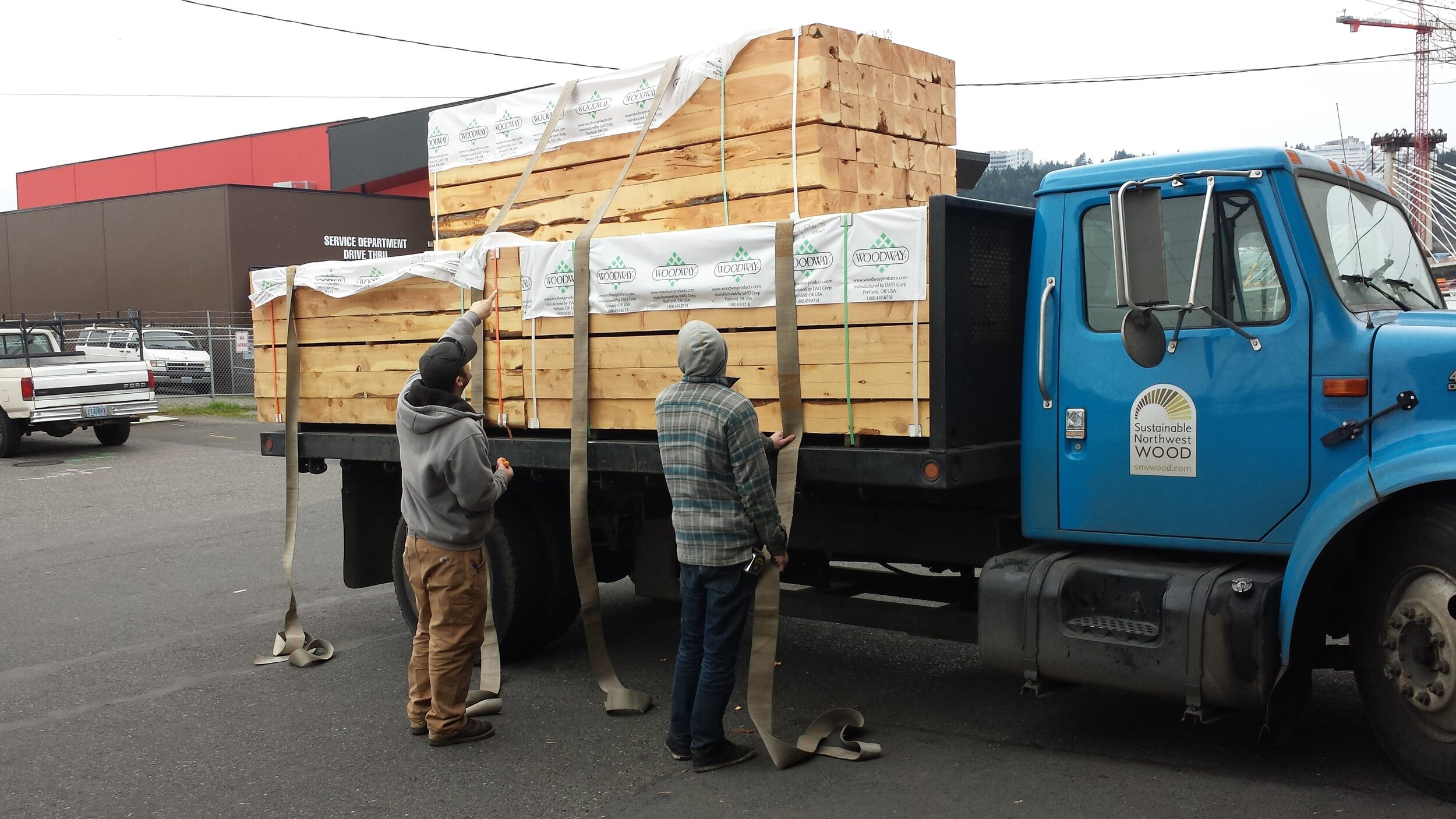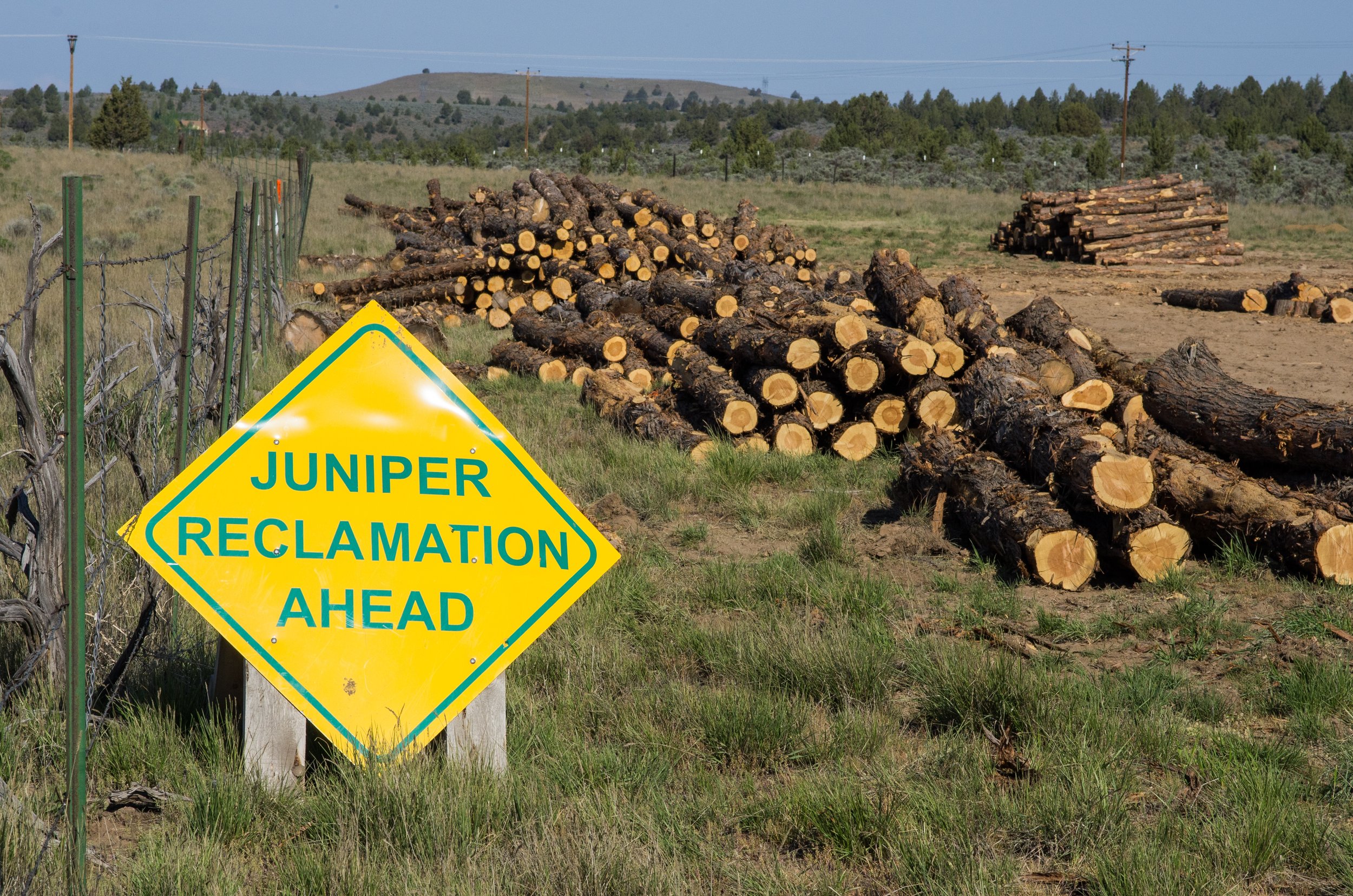Western Juniper
Partnering to develop markets and incentives for harvesting invasive Juniper to benefit people, the environment, and local economies.

Developing markets to sustain restoration and milling businesses
by increasing the quantity and diversity of invasive Juniper supply in the marketplace.
WHY FOCUS ON WESTERN JUNIPER?
Western Juniper encroachment is consistently cited among the top threats to rangeland health across eastern Oregon. In 1930, 1.5 million acres of juniper dotted the landscape in Oregon. Due to 100 years of fire suppression, that number has now skyrocketed to 10 million acres.
Lack of management has turned this native plant into an aggressive invasive, threatening the health and well-being of Oregon’s rangelands and the communities and wildlife that depend on them.
There is strong scientific and social agreement that invasive juniper trees need to be removed from publicly and privately owned lands to improve the resilience of native grasslands, discourage the spread of weeds, increase water supplies, decrease wildfire risks, and restore habitat for sensitive species like sage grouse and mule deer.
Wood products made from juniper also offer a local, naturally rot-resistant alternative to imported woods and pressure treated products that use harmful chemicals to enhance durability.
100,000
Acres of invasive Western Juniper removed annually
4 Million
Board feet of Western Juniper wood products produced annually
10
Sawmills supported by the Western Juniper industry, supporting 55 jobs
KEY PROJECTS
-
In 2020, Sustainable Northwest partnered with the U.S. Forest Service to conduct a unique forest and rangeland restoration project called the West Balogna Juniper Stewardship.
This 240-acre landscape on the Umatilla National Forest was historically open and supported wildlife habitat that has since been overtaken by Western Juniper.
The project reduced competition for limited resources by thinning and removing encroaching conifers, allowed for the reintroduction of wildfire, and improved habitat for deer, elk, and birds.
By partnering with Sustainable Northwest, the significant quantities of Western Juniper removed from the site was sold to sawmills in the region to create green building products rather than burning it.
-
When landowners in Ritter — located an hour north of John Day — identified the spread of juniper as one of the greatest threats to the health and productivity of their lands, the group began to wonder if a sawmill might be the answer.
The group contacted us, and we helped the team tap into the Western Juniper Industry Fund, created by the state Legislature to help jump-start the juniper sawmill industry. It provided funding for a feasibility study to determine if the idea of a sawmill in Ritter would work.
Ritter landowner and Ritter Land Management Team board chair Rhonda Kennedy said that in addition to examining the quality and quantity of the juniper supply the study also looked at the financial feasibility of a small sawmill operation in Ritter. Soon after the study was completed, the team had to make a decision.
The Western Juniper Fund still had money to help purchase some of the needed equipment for the Ritter sawmill, but not enough to do everything, and the program was about to end.
Oregon Community Foundation quickly stepped up to help leverage the state funds and meet the match requirement.
-
Despite expanding market opportunities and demand for Western Juniper lumber products, the vast majority of juniper trees are not utilized.
The greatest use of Western Juniper continues to be as a durable, rot resistant wood species for agricultural and landscaping purposes.
However, if the industry is to be profitable and scale up to its full potential, we must focus efforts on utilizing “the whole log” for both low value purposes, as well as secondary manufacturing.
This project is increasing use of low value juniper and waste from restoration and manufacturing by developing new markets for post and poles and erosion control products.
Doing so reduces waste, increases business profitability, and increases industry efficiency and viability.
-
In July 2013, Oregon Governor John Kitzhaber launched the Western Juniper Alliance (WJA), a collaborative effort managed by Sustainable Northwest.
The goal of the WJA is to accomplish ecosystem restoration in eastern Oregon, and create jobs in Juniper supply and market chains in rural communities, the Portland metro area, and along the West Coast.
The project is coordinated with over 50 state and federal agency partners, business leaders, and non-governmental organizations.





